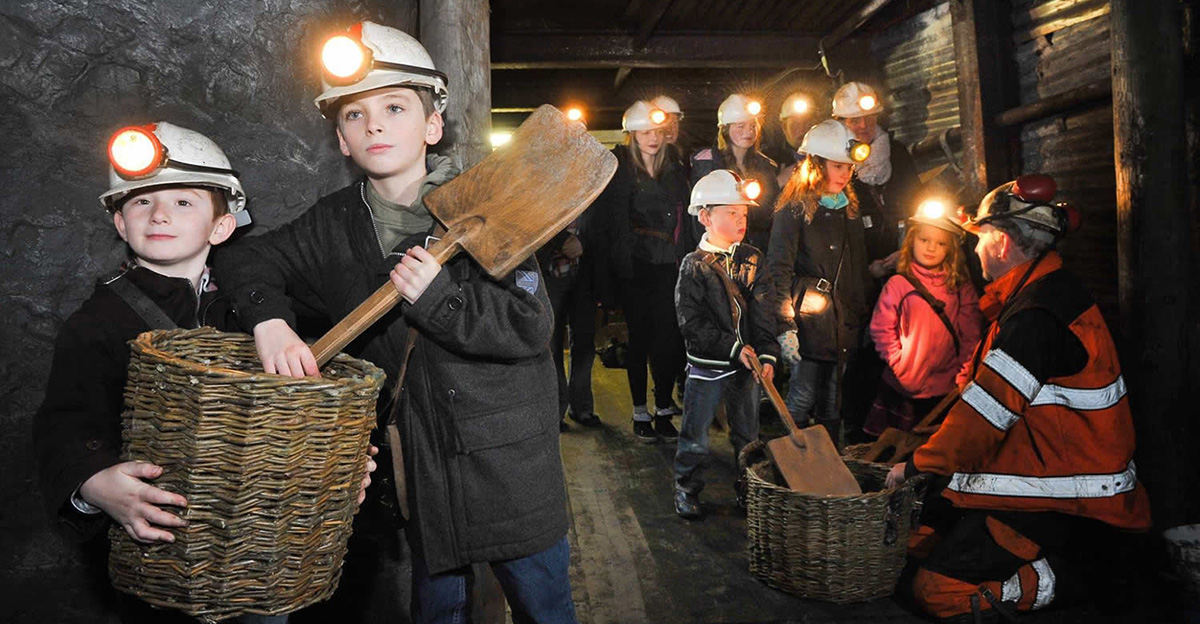Dr Jeremy Hopwood
Senior Lecturer and Communicator in Science
Dr Hopwood has been holding a series of workshops at Caphouse, a former working pit situated inside the National Coal Mining Museum, to entice a younger audience to become interested in science.
TODAY, Caphouse Colliery near Wakefield is mined for knowledge and history, but like a working pit it must constantly be pumped dry so that its thousands of visitors can continue to go underground and learn about the hardships and challenges of the centuries-old quest for coal.
The massive pumping operation itself yields educational and outreach opportunities for a University of Huddersfield lecturer who is not only an expert in analysing water purity – carrying out research that has helped to reduce levels of lead in tap water - but also has a role in making sure that local school students are stimulated by science.
Dr Jeremy Hopwood is a Senior Lecturer and Communicator in Science at the University. Every year he holds a series of workshops at Caphouse, the former working pit that is now the National Coal Mining Museum. He has also conducted practical sessions with some of the University’s own technicians.
Pumps located some 140m below the surface in the Hope shaft at Caphouse are used to keep the water level within the required limits. Coal produces the ferric material named ochre and this means that the excess water, after it has been removed and transferred to nearby settling ponds, turns a bright orange before it is purified in reed beds.
The chemical reaction at Caphouse makes it “a giant test tube underground” said Dr Hopwood, and this provides ample opportunities for young science students taking part in his workshops to go outdoors to collect water samples and then return to the NCM’s own classroom-based lab where they don white coats to conduct analysis.
The new science building
The University of Huddersfield has constructed a new £18.2 science building, where technicians will operate highly-advanced analytical equipment for research and teaching in fields that include water purity and drug development.
In advance of occupying their new labs, a group of eight technicians at the University’s School of Applied Sciences took part in a special session hosted at Caphouse by Dr Hopwood. There was a trip down the historic pit, field sampling of excess water and then a lab session. Team leader Natasha Reed said that it was great to see staff in a different setting one that was both stimulating and fun.
University of Huddersfield participants in the NCM ‘away-day’ support teaching and are specialists in techniques that include High Phase Liquid Chromatography, Gas Chromatography-Mass Spectrometry and Nuclear Magnetic Resonance.
- The University has recently signed up to the Technician Commitment. Led by the Science Council, this is a UK-wide initiative designed to ensure that the technical experts, who are vital to the work of researchers and students, receive full recognition and career advancement.
Related News
Uni and Yorkshire Water aim to reduce lead traces
Huddersfield scientists and Yorkshire Water combined forces to reduce the traces of lead which are occasionally found in tap water
University signs up to the Technician Commitment
This UK-wide initiative ensures the technicians in our schools receive full recognition and career advancement
Honorary Award for cave diving expert
Cave diver Jason Mallinson helped to rescue a young Thai football team when they became stranded in flooded caves in 2018

